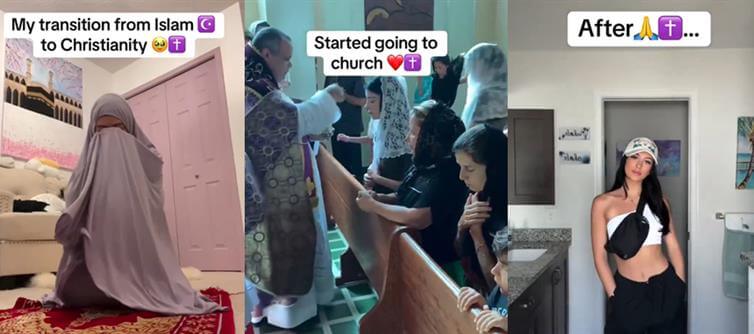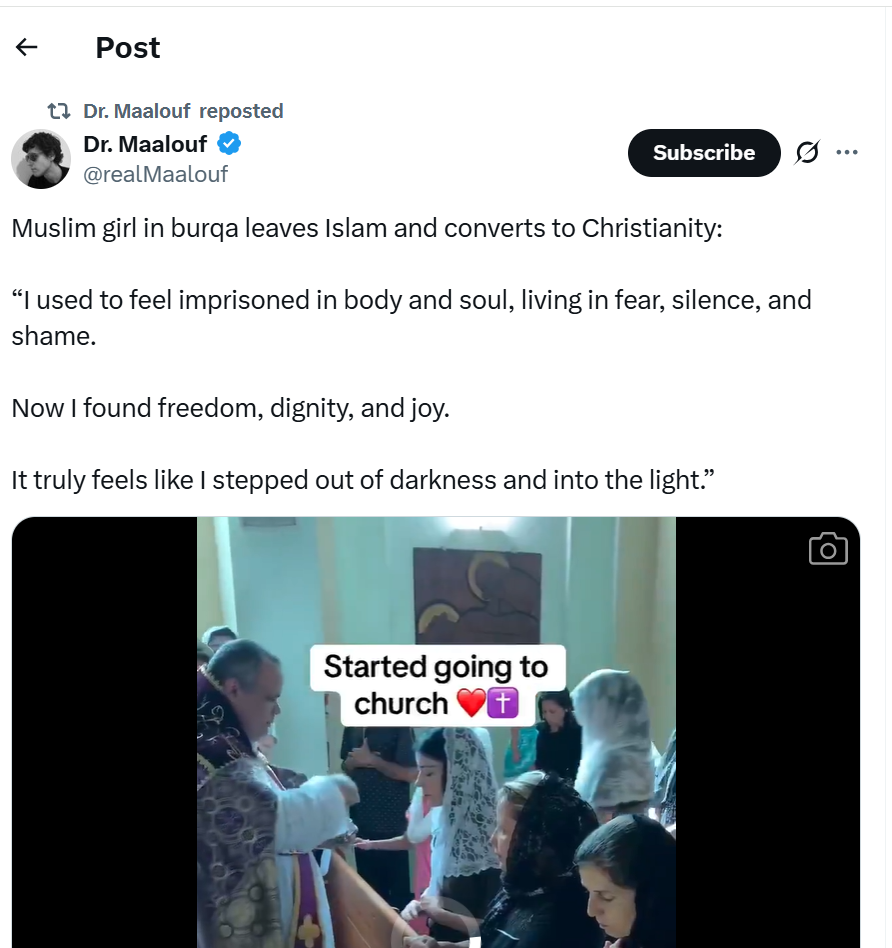
While wearing a burqa can be a symbol of devotion and identity for many Muslim women, for her, it represented something far more suffocating: a physical and emotional prison that constrained her ability to express, question, or grow. Her experience reflects a deeply individual journey, shaped by her unique circumstances, upbringing, and spiritual longing.
 Her description of christianity as a source of freedom, dignity, and joy marks a stark contrast to what she endured before. The imagery she uses—stepping “out of darkness and into the light”—suggests more than a change in religion; it indicates a rebirth of identity and hope. Such expressions are common among converts who feel they have found a deeper truth or connection in their new faith. However, this transformation can come at great personal cost, often resulting in rejection by family, isolation from community, and even threats to personal safety. Yet, for many like her, the spiritual peace and newfound sense of self outweigh those hardships.
Her description of christianity as a source of freedom, dignity, and joy marks a stark contrast to what she endured before. The imagery she uses—stepping “out of darkness and into the light”—suggests more than a change in religion; it indicates a rebirth of identity and hope. Such expressions are common among converts who feel they have found a deeper truth or connection in their new faith. However, this transformation can come at great personal cost, often resulting in rejection by family, isolation from community, and even threats to personal safety. Yet, for many like her, the spiritual peace and newfound sense of self outweigh those hardships.It is important, however, to remember that religious experiences are deeply personal and not universal. While this young woman found liberation in leaving islam, millions of Muslim women around the world find strength, peace, and purpose within their faith. Her story should not be used to generalize or stigmatize an entire religion or culture. Instead, it should be respected as an individual’s right to seek truth and meaning on her own terms, just as others have the right to remain in or return to their faiths. In a free society, the ability to question, convert, or remain is a cornerstone of human dignity and must be protected for all.




 click and follow Indiaherald WhatsApp channel
click and follow Indiaherald WhatsApp channel